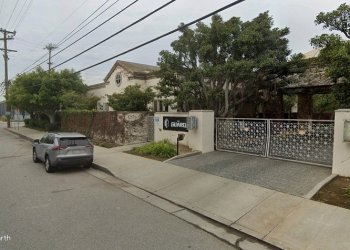The Los Angeles City Council’s Budget and FinanceCommittee took a closer look
at Mayor Eric Garcetti’s proposal to spend
$138 million to address homelessness as it began hearings on a proposed $8.76
billion budget for the 2016-2017 fiscal year.
The homelessness funding was proposed in response to a commitment by
Garcetti and other city leaders last year that the city spend $100 million to
end homelessness.
Garcetti’s proposed homelessness funding includes $64.7 million from the
general fund, which is typically used for the day-to-day operation of city
services, public safety and employee salaries.
To provide for the rest of the $138 million, Garcetti is proposing that
the city charge a “linkage fee” on construction projects to generate an
estimated $20 million, while another $47 million would come from selling off
city-owned property or converting some of it into affordable housing.
The homelessness funds would go toward services and housing provided
through the Los Angeles Homeless Services Authority, Los Angeles Police
Department “smart teams” that deal with people with mental illness, and
“hope teams” tasked with removing encampments and referring homeless
individuals to services.
About half of this budget would be put into an affordable housing trust
fund that could be used to spur residential projects geared at housing the
homeless.
Garcetti’s staff and other city officials told the panel today that the
homelessness funds are intended as a one-time expenditure, and to continue
funding services and affordable housing projects in future years, a sustainable
source of funds should be created.
This could potentially be done through asking voters to approve a tax
increase, bond measure or other method for raising money, they said.
Garcetti’s budget for homelessness also depends on hotel tax revenue,
particularly from increased taxation of Airbnb-type short-term rentals, to pay
for so-called “rapid rehousing” subsidies to help homeless people get placed
in housing quickly.
The city this year had been expected to adopt a law regulating short-
term rentals and requiring that this activity be taxed, but the law is still
being developed and debated.
City Administrative Officer Miguel Santana said that despite the delay
with regulation, those who are hosting short-term rentals are already supposed
to be paying taxes, especially if they are charging fees and earning enough to
be considered a business.
Some “honest” hosts did take it upon themselves to pay taxes this
year, bring in about $1.5 million in revenue, he said.
Santana said that to encourage more short-term rental hosts to pay taxes
in the upcoming year, he is working with the Office of Finance to simplify
their tax payment system, which is currently “a bit of a maze.”
Council members said, however, that they were concerned that without
anyone in the finance department enforcing the payment of taxes by short-term
rental hosts, such as with a sting operation, the city may be getting less than
anticipated to pay for rapid rehousing.
Councilman Mike Bonin said that with a large portion of the proposed
funds earmarked to address homelessness “not realized yet,” the
responsibility would be on the City Council to take action to make these
funding sources reality.
Bonin added that he is willing to take on the challenge, which includes
ensuring that the linkage fee is approved and that the city is able to generate
funding or affordable housing units from the city-owned properties identified
by the mayor.
Bonin’s district includes Venice, where a large homeless population has
set up encampments, and has four of the city-owned properties identified by
Garcetti as potential affordable housing sites.
The Budget and Finance Committee also examined the budgets of individual
departments including transportation and public works, and took comments from
members of the public who urged the city to ensure funding is available for day
laborer centers, a dog park in Eagle Rock and an office that would be
responsible for enforcement on wage theft.
The budget hearings are expected to continue through May 13, with
discussion of additional city department budgets. City union representatives
and members of neighborhood councils are scheduled to make presentations at a
hearing on Monday.




















